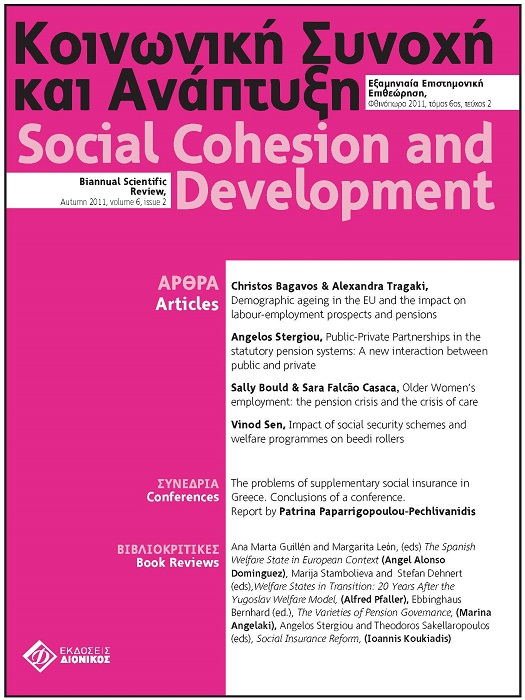Impact of social security schemes and welfare programmes on Beedi Rollers

Abstract
Beedi rolling is one of the major informal
sector activities in India, which employs a
large number of women and children. The
Government of India estimates that there are
about 50.53 lakh workers in this industry and
44,49,352 identity cards have been issued
to beedi workers. Of these, the majority are
home-based female workers who live below
poverty line. Beedi workers constitute one of
the most vulnerable sections of the country’s
workforce. This paper is an attempt to
evaluate the effectiveness of social security
and welfare programmes and its provision
such as educational, medical, insurance,
pension and other issues. The paper “Impact
of Social Security and Welfare Programmes
on Beedi Rollers”, is based on the primary
data collected from the Sagar district of
Madhya Pradesh and Rajnandgaon district of
Chhattisgarh.
Article Details
- How to Cite
-
Sen, V. (2016). Impact of social security schemes and welfare programmes on Beedi Rollers. Social Cohesion and Development, 6(2), 133–147. https://doi.org/10.12681/scad.8964
- Issue
- Vol. 6 No. 2 (2011)
- Section
- Articles

This work is licensed under a Creative Commons Attribution-NonCommercial-ShareAlike 4.0 International License.
Authors who publish with this journal agree to the following terms:
- Authors retain copyright and grant the journal right of first publication with the work simultaneously licensed under a Creative Commons Attribution Non-Commercial License that allows others to share the work with an acknowledgement of the work's authorship and initial publication in this journal.
- Authors are able to enter into separate, additional contractual arrangements for the non-exclusive distribution of the journal's published version of the work (e.g. post it to an institutional repository or publish it in a book), with an acknowledgement of its initial publication in this journal.
- Authors are permitted and encouraged to post their work online (preferably in institutional repositories or on their website) prior to and during the submission process, as it can lead to productive exchanges, as well as earlier and greater citation of published work (See The Effect of Open Access).


